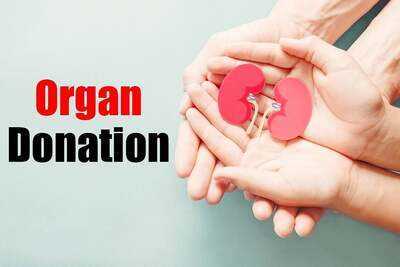
Bhopal (Madhya Pradesh): Dr Rakesh Bhargav, a member of the Madhya Pradesh State Advisory Committee for Organ Donation and MP State Authorisation Committee for Organ Donations, has been actively involved in addressing the challenges regarding organ donation in the state.
According to Dr Bhargav, significant hurdles persist, including the need to close loopholes in the system to curb organ commerce, the growing demand for organs compared to their limited availability, and the need to protect donor rights more effectively to prevent exploitation.
Dr Bhargav emphasized the importance of the Transplantation of Human Organs Act (THOA), which was enacted in 1994. The law was meant to create a regulated system for the removal, storage, and transplantation of human organs for therapeutic purposes, while simultaneously preventing commercial dealings in human organs. In an interview with Free Press, Dr Bhargav shared his insights on various challenges regarding organ donation and transplantation in India.
Excerpts:
From time to time, news of commercial dealings in organs, or cash for kidney scams, surface in the media, which develops misconceptions about organ donations among public. How can the administration clear these misconceptions when approaching people for counselling?
The government should take an active role in promoting organ donation as a "GOI mission" for the public. The presence of government officials, including tehsildars, during counselling sessions can help build confidence among the public. Currently, public perceives that whenever we talk about organ donation, they immediately associate it with a potential link to organ rackets for financial gain.
Is there any law or Act that facilitates organ donation, and how does it help?
Yes, the Transplantation of Human Organs Act (THOA) was introduced in 1994 to ban sale of organs. It allows organs to be donated only between close family members or for altruistic reasons, with no monetary exchange. If the donor is a friend or distant relative, they must approach the court. The Act ensures that live donors, such as a father, mother, or sibling, donate organs for emotional attachment rather than for financial gain. All other live donors must be screened by the state transplantation authorization committee to confirm that the donation is genuine.
How does money play a role in organ donation rackets?
Unrelated organ donation has traditionally been one-way traffic—where the poor donate organs to the rich. The current law is not strict enough to prevent unrelated living donors from falsely claiming to be a friend or relative, donating organs for emotional reasons rather than for financial gain. This creates a situation where, while donations from doctors or wealthy individuals are not questioned, donations from poorer individuals often raise suspicion, putting the entire hospital management under scrutiny.
Where does Madhya Pradesh stand in terms of organ donations compared to other states?
In states like Maharashtra, Gujarat, and those in the South, 150-200 organ donations are reported annually. In contrast, Madhya Pradesh only reports around 10 donations each year. There is an urgent need to raise public awareness. Additionally, the law could be made more lenient—if a hospital does not wish to use the organs allocated to it, those organs should be immediately reallocated to hospitals that are interested in using them.
Can live donors donate organs in the same way as brain-dead donors?
Yes, live donors can donate several organs, including the uterus, kidney, liver, skin, and bone marrow. The success rate for lung transplants, however, is relatively low compared to other organ transplants. Overall, organ transplants are generally successful, and it is important to raise awareness among the public. Organ donation should be seen as a "government mission," not a "racket" for financial gain.